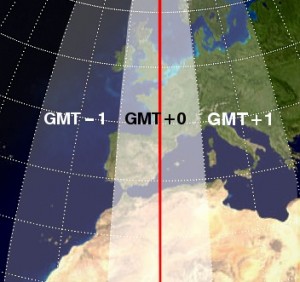
Spain’s timezone anomaly has been a curious thing for 70 years, but acting PM Mariano Rajoy has pledged to adopt GMT if he wins re-election.
In recent months Spain has given serious consideration to shifting its clocks back one hour in order to adhere to Greenwich Mean Time (GMT) and bring the country in line with its geographical position at the western edge of Europe.
Spain’s acting prime minister Mariano Rajoy has revisited the issue, stating this week that should he win re-election then he would push through the change – a change that he believes will offer Spaniards a better quality of life…
Spain adopted Central European Time (CET) in the 1940s when dictator General Franco sought solidarity with the country’s allies at the time, Nazi Germany. Since then, Spain has remained one hour ahead of the UK, even though Madrid, its capital, is further west than London. Currently, Spain and Serbia, which is 1,550 miles to the east, share the same time zone.
Spain’s hot climate means that by doing things a little later in the day, many Spaniards are able to work and be more active for longer when the temperatures are generally cooler. This has helped underpin a vibrant nocturnal culture where the streets hum with activity until late into the night, with many people not dining until as late as 10pm or 11pm.
However, by putting mainland Spain back to GMT (the Canary Islands are already there), Rajoy believes that Spaniards can finish their working days sooner and enjoy closer business ties with the rest of Europe, thus improving the nation’s GDP and work-life balance, and potentially increasing productivity to more northern European levels.
Of course, this could also spell the end of the two-hour lunch break, so there may well be some resistance within Spain itself, even if the current timezone anomaly is a remnant of Franco’s fascist reign.
However, a decision is unlikely to be made until June, when Spaniards go to the polls once again in a second general election after last December’s vote could not secure a majority for a single party.
 en
en



 Vlaams-Nederlands
Vlaams-Nederlands
1 Comment
Leave a Comment
DISCLAIMER
The opinions and comments expressed by contributors to this Blog are theirs alone and do not necessarily reflect the views of VIVA Homes Under the Sun Ltd, any of its associated companies, or employees; nor is VIVA to be held responsible or accountable for the accuracy of any of the information supplied.
Remi AcienNovember 26, 2016 at 12:24 am
I say yes for the change of time zone concerning the Spain .it will be GMT+1.00 GMT 0.00 .Like the Balearic Islands.
Have you got something to say?